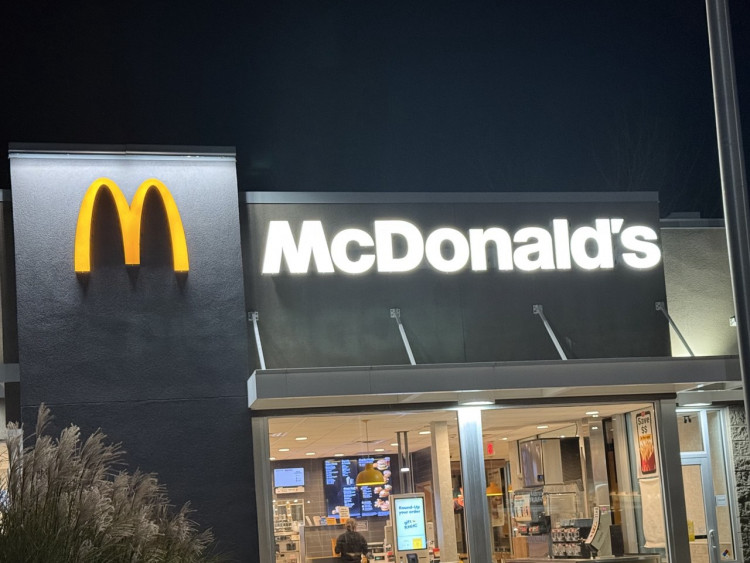McDonald's reported weaker-than-expected fourth-quarter revenue on Monday, as U.S. sales were hit by declining consumer spending and an E. coli outbreak linked to its Quarter Pounder hamburgers. The fast-food giant's global same-store sales edged up 0.4% in the quarter, surpassing Wall Street expectations of a decline, but U.S. same-store sales fell 1.4%, deeper than analysts' projected 0.6% drop.
The company's total revenue for the quarter stood at $6.38 billion, slightly below the $6.45 billion estimated by analysts surveyed by FactSet. Net income declined by 1% to $2.01 billion, while adjusted earnings per share were $2.83, in line with forecasts. Despite the weaker performance, McDonald's shares rose over 4% in morning trading as executives projected a rebound in 2025.
McDonald's domestic sales had already been slowing in early 2024 as price-conscious consumers reacted to inflation-driven menu hikes. In response, the company introduced a $5 value meal last June, which briefly reignited traffic and was extended through December. However, the strategy did not sustain its momentum, and an E. coli outbreak in October further damaged consumer confidence.
The U.S. Centers for Disease Control and Prevention linked the outbreak to raw yellow onions distributed by Taylor Farms, a California-based supplier. At least 104 people across 14 states were sickened, including 34 hospitalizations and one fatality in Colorado. McDonald's removed the recalled onions from its supply chain, and the FDA closed its investigation in December, declaring the outbreak over.
Despite this, the impact on McDonald's U.S. sales was significant, particularly in the affected regions. CEO Chris Kempczinski acknowledged the damage, saying, "I think right now what we're seeing is that the E. coli impact is now just localized to the areas that had the biggest impact. So think about that as sort of the Rocky Mountain region that was really the epicenter of the issue."
McDonald's U.S. same-store sales began recovering in late November, but demand for the Quarter Pounder, a high-margin menu item, remained weaker than expected. The company expects its domestic sales to stabilize by the second quarter. To fuel its recovery, McDonald's plans to reintroduce its snack wraps and launch a new chicken strip menu item in 2025.
While the company struggled in the U.S., its international markets showed resilience. The international operated markets division, which includes the United Kingdom and France, reported same-store sales growth of 0.1%. Some key markets, including the U.K., saw sales contract, but France emerged as a bright spot, returning to positive same-store sales territory.
McDonald's international developmental licensed markets segment, which covers regions including the Middle East and Japan, performed better, posting 4.1% same-store sales growth. The Middle East was particularly strong after years of sluggish demand.
For 2025, McDonald's expects the first quarter to be the weakest for same-store sales, citing a slow start to the year in the U.S., extreme weather conditions, and continued consumer spending pressures. "Winter storms and wildfires in California weighed on restaurant traffic across the industry in January," CFO Ian Borden said.
McDonald's remains committed to expansion, with plans to open approximately 2,200 new locations this year. About 1,000 of those restaurants will be in China, with the remainder spread across the U.S. and other international markets. The company expects to spend between $3 billion and $3.2 billion on capital expenditures, including new openings and renovations.
The company also anticipates a headwind of 20 to 30 cents per share in full-year earnings due to foreign exchange rate fluctuations. As McDonald's prepares for a turnaround, its ability to balance affordability with profitability will be closely watched by investors.






